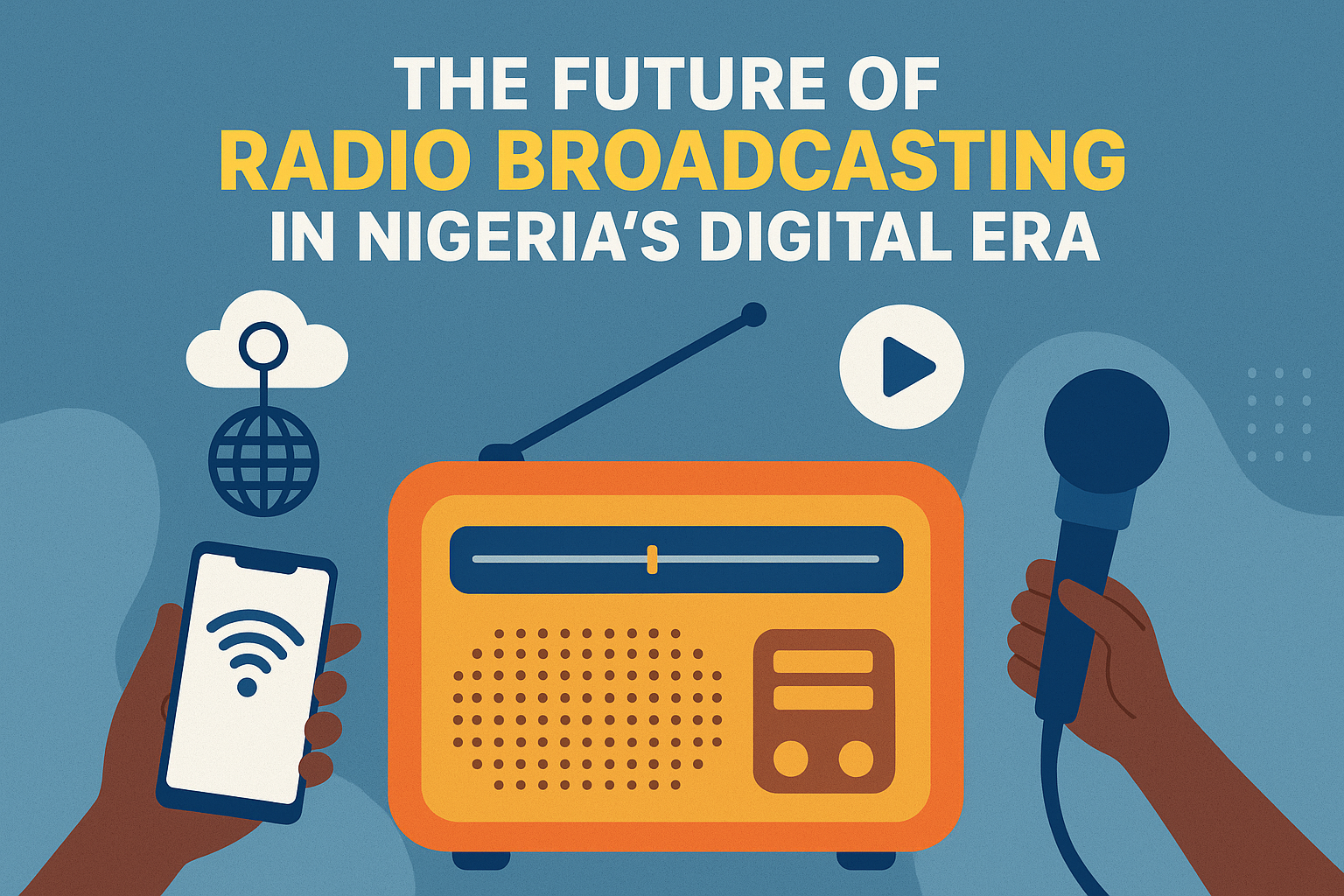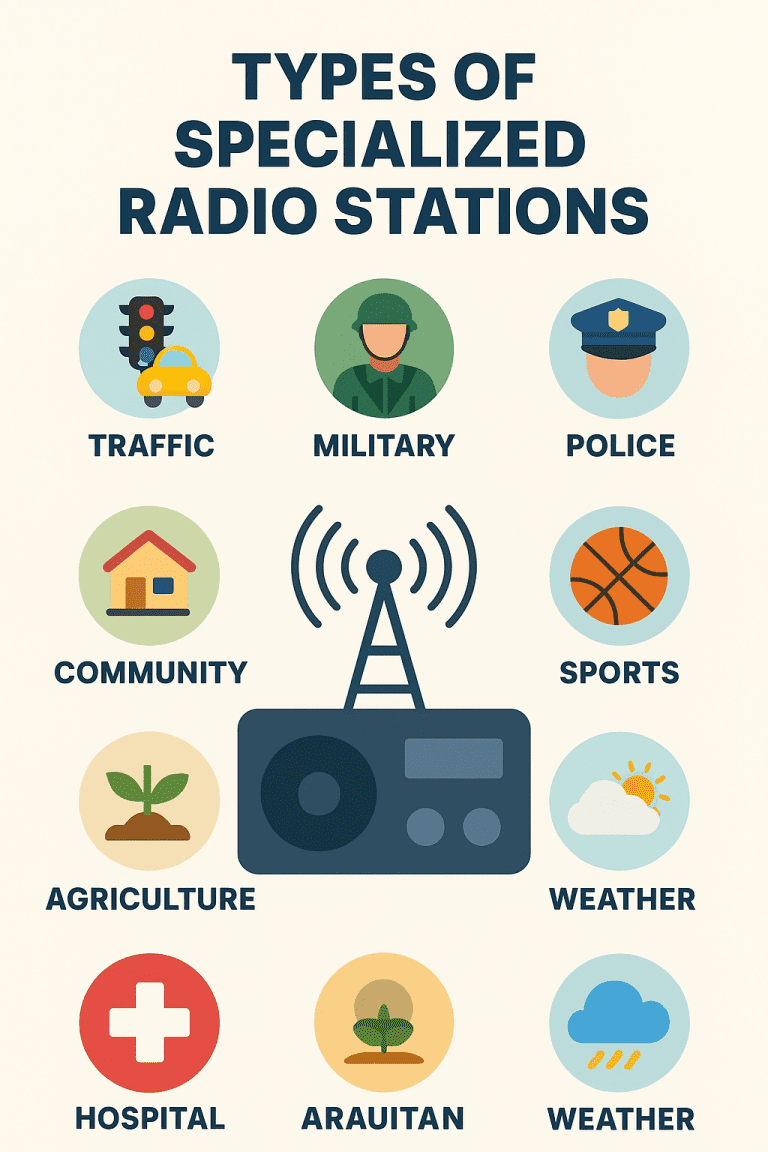The Evolution and Future of Radio Broadcasting in Nigeria
Radio broadcasting in Nigeria has undergone a remarkable transformation since its inception. From the early days of colonial radio in the 1930s to today’s digital revolution, radio has remained one of the most influential media for news, education, entertainment, and community engagement. With the rise of online radio, podcasts, and mobile apps, the Nigerian radio industry is adapting to changing technologies and shifting audience preferences.
In this article, we’ll explore:
- The history of radio broadcasting in Nigeria
- The impact of digital technology
- The challenges facing traditional radio
- The future of radio broadcasting in Nigeria
Read also: Marketing Strategies to Grow Your Radio Station Listenership
The Evolution of Radio Broadcasting in Nigeria
The story of Nigerian radio began in 1933 with the establishment of the Lagos Station, managed by the British government. Programming in this early era focused heavily on news updates, religious messages, and educational broadcasts, reflecting the colonial agenda.
A major turning point came in 1951 with the creation of the Nigerian Broadcasting Corporation (NBC), tasked with managing both radio and television. As a state-controlled agency, NBC emphasised national unity, cultural identity, and educational programming.
The introduction of the FM band in the 1970s dramatically improved sound quality and expanded the range of programming. This opened the door for private and community radio stations, allowing radio to grow beyond state control and become more diverse in content.
By the late 1990s and early 2000s, digital radio broadcasting emerged, offering:
- Clearer audio signals
- Wider coverage, even in rural areas
- Greater content variety
This marked the beginning of a new era where radio could compete with modern digital platforms and remain a central part of Nigerian media.
Read Also: How to Set Up a Cost-Effective FM Radio Station in Nigeria
Impact of Digital Technology on Radio Broadcasting
Digital technology has reshaped radio in Nigeria in profound ways.
1. Online Radio
The rise of online radio stations allows broadcasters to reach global audiences, including Nigerians in the diaspora. Listeners can now tune in from anywhere in the world, breaking the traditional limits of FM/AM frequencies.
2. Podcasting
Podcasts have become a growing trend among Nigerian broadcasters. They allow for on-demand listening, giving audiences flexibility to consume content at their convenience. This format has especially appealed to younger, tech-savvy listeners.
3. Mobile Apps & Streaming
Smartphone penetration has fueled the popularity of radio streaming apps, which often include interactive features such as:
- Live chat with presenters
- Listener polls
- Social media integration
This interactivity has strengthened audience engagement and loyalty.
4. Social Media Integration
Radio stations now use Facebook, Instagram, X (Twitter), and TikTok to promote shows, run polls, and host live conversations. This strategy not only boosts reach but also allows for real-time listener feedback.
5. Data & Analytics
With digital tools, broadcasters can now track listener demographics, interests, and behaviour, allowing them to tailor programs and advertising strategies more effectively.
Read Also: What You Need to Start Online Radio Streaming (Beginner’s Guide)
Challenges Faced by Traditional Radio in the Digital Age
While digital transformation presents opportunities, traditional radio in Nigeria faces several challenges:
- Competition from streaming platforms: Music apps like Spotify, Audiomack, and YouTube attract younger audiences away from radio.
- Decline in advertising revenue: Brands prefer digital platforms that offer measurable results through targeted ads.
- Skills gap: Many radio professionals lack training in digital broadcasting, podcasting, and data analytics, making adaptation difficult.
- Regulatory issues: Outdated policies and limited government support can slow the adoption of new broadcasting technologies.
Unless traditional radio embraces innovation, it risks losing relevance in an increasingly digital marketplace.
The Future Landscape of Radio Broadcasting in Nigeria
The future of radio in Nigeria looks promising if the industry continues to embrace technology and innovation.
- AI and Data Analytics: Artificial intelligence will help personalise content and improve audience engagement.
- Community-focused Programming: Local stories and cultural narratives will strengthen community trust and loyalty.
- Partnerships with Tech Firms: Collaborations could lead to innovative digital solutions for better broadcasting.
- Supportive Government Policies: Investment in infrastructure and favourable regulation will be vital for sustainable growth.
Ultimately, the radio of the future will not just be about FM/AM frequencies, but about being available anytime, anywhere, on any device.
Conclusion
From its beginnings in colonial Lagos to the rise of digital and online platforms, radio in Nigeria has constantly evolved. Despite facing competition from streaming platforms and podcasts, radio remains a powerful medium for storytelling, education, and community engagement.
With continued innovation, digital adoption, and supportive policies, the Nigerian radio industry is well-positioned to thrive in the digital age.
If you’re interested in setting up an online radio station for your business, community, or brand, contact ENGRMKS & CO. today. We provide professional online radio installation and digital broadcasting solutions tailored for Nigerian audiences





